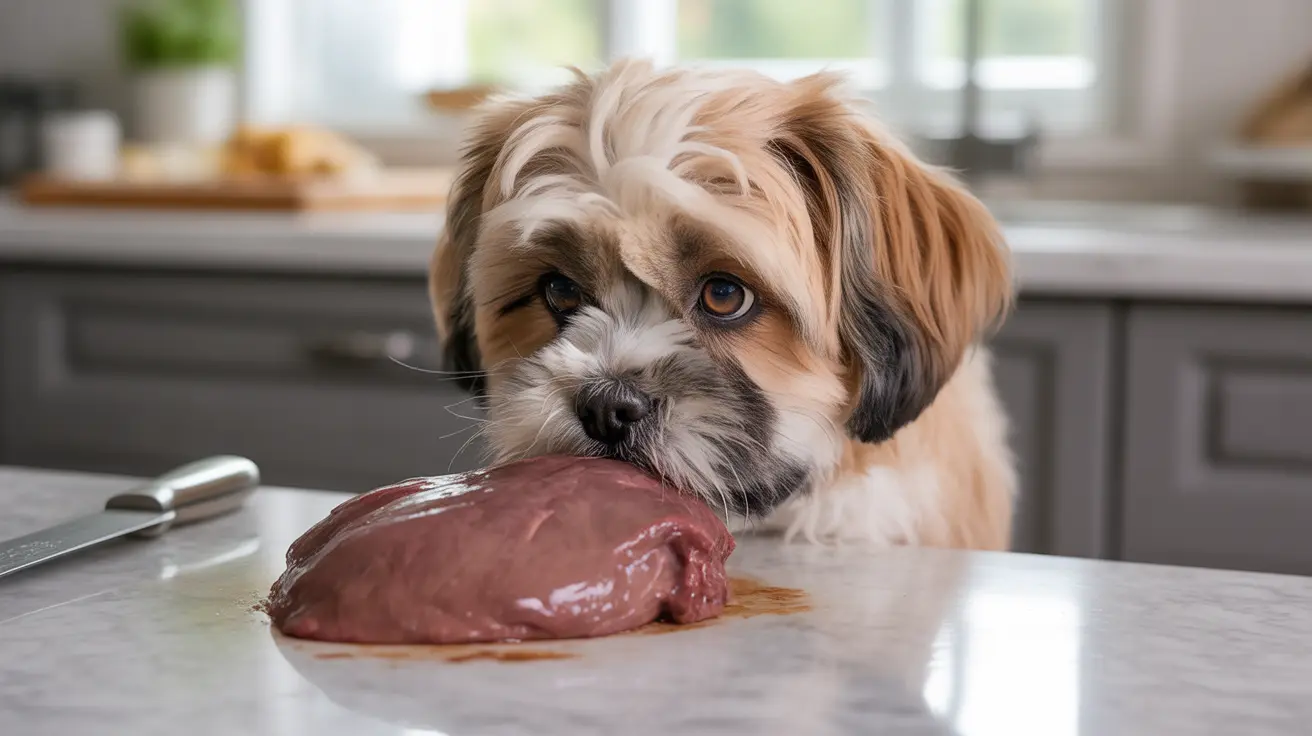Beef liver is a nutrient powerhouse that can significantly enhance your dog's diet when prepared correctly. As a rich source of essential vitamins, minerals, and high-quality protein, knowing how to cook beef liver for dogs properly ensures your furry friend receives maximum nutritional benefits while enjoying a safe and delicious treat.
In this comprehensive guide, we'll explore the best methods to prepare beef liver for your canine companion, along with important feeding guidelines and nutritional insights that every pet parent should know.
Essential Preparation Methods for Beef Liver
Boiling Method
Boiling is one of the simplest and most effective ways to cook beef liver for dogs. Start by cutting the liver into small, manageable pieces appropriate for your dog's size. Place the liver in a pot of plain water and bring to a gentle boil. Cook for about 10-15 minutes until the liver is cooked through but still slightly pink in the middle to preserve nutrients.
Baking Method
Preheat your oven to 350°F (175°C). Place liver pieces on a lined baking sheet and bake for approximately 15-20 minutes. Avoid using oils, seasonings, or marinades, as plain liver is best for your dog's digestive system.
Dehydrating for Treats
Cut liver into thin strips and dehydrate at 165°F for 4-6 hours until completely dry. These make excellent high-value training treats that maintain most of the nutritional benefits while being easy to store and handle.
Safe Handling and Storage Tips
When preparing beef liver for your dog, always follow these safety guidelines:
- Clean and sanitize all preparation surfaces thoroughly
- Store raw liver in the refrigerator for no more than 2 days
- Freeze cooked liver portions in small containers for up to 3 months
- Thaw frozen liver in the refrigerator, never at room temperature
- Discard any unused portions after 3-4 days in the refrigerator
Serving Sizes and Introduction
Begin with small portions when introducing beef liver to your dog's diet:
- Small dogs (under 20 lbs): Start with about 1 tablespoon
- Medium dogs (20-50 lbs): Begin with 2-3 tablespoons
- Large dogs (over 50 lbs): Start with 1/4 cup
Gradually increase portions while monitoring your dog's reaction. Liver should not exceed 5-10% of your dog's total diet to prevent vitamin A toxicity.
Frequently Asked Questions
How do I safely cook beef liver for my dog to maximize its nutritional benefits?
Cook beef liver until just done but still slightly pink in the middle to preserve nutrients. Avoid using oils, seasonings, or additives. You can boil, bake, or dehydrate the liver, ensuring it reaches a safe internal temperature without overcooking.
What are the health benefits of feeding beef liver to dogs regularly?
Regular beef liver consumption provides essential nutrients including iron, vitamin A, B vitamins, copper, and zinc. These nutrients support immune function, energy levels, cognitive health, and proper blood cell formation.
How much beef liver can I feed my dog without risking vitamin A toxicity?
Limit beef liver to 5-10% of your dog's total diet. For most dogs, this means no more than 1-2 servings per week. Large breeds can handle more than small breeds, but moderation is key to prevent vitamin A overdose.
Can I feed my dog raw beef liver, and what precautions should I take?
While raw beef liver is safe for dogs as part of a balanced raw diet, ensure it's from a trusted source and handle it with proper food safety protocols. If you're unsure, lightly cooking the liver is a safer option.
What are the best methods to prepare beef liver to make it more appealing to picky dogs?
For picky eaters, try lightly searing the liver to enhance its aroma, cutting it into small pieces and mixing it with regular food, or dehydrating it into chewy treats. You can also try boiling and then blending it into a paste to mix with their regular meals.
Conclusion
Learning how to cook beef liver for dogs properly ensures your pet receives maximum nutritional benefits from this superfood. Remember to introduce liver gradually, maintain appropriate portions, and always prepare it without additives or seasonings. With these guidelines, you can safely incorporate this nutrient-rich organ meat into your dog's diet for optimal health benefits.






